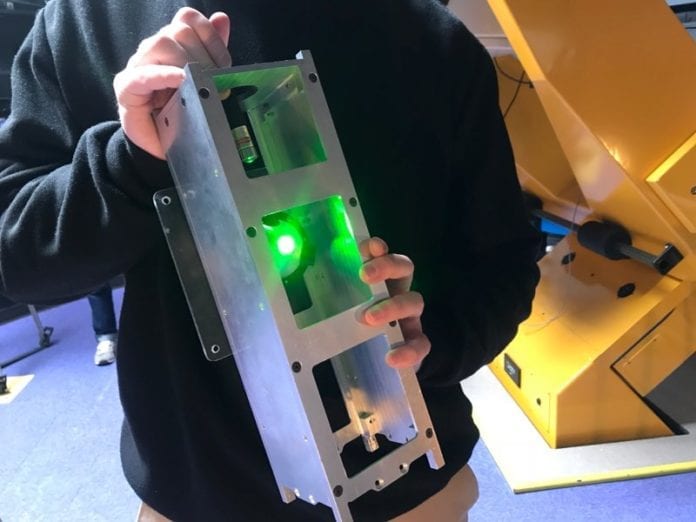A team of about twenty graduate and undergraduate students from the University of Victoria has been selected to lead the province in the Canadian Space Agency’s new post-secondary student space initiative called the CubeSat Project.
The CSA has selected 15 teams across the country, who will each be launching a cube shaped satellite measuring 10 cm x 10 cm x 10 cm into orbit from the International Space Station in 2020.
UVic’s satellite, built in collaboration with Simon Fraser University and the University of British Columbia, is dubbed ‘OrcaSat’, or Optical and Radio Calibration for Atmospheric Attenuation Satellite (ORCAASat).
The objective
Once in orbit, OrcaSat will be monitored and used to conduct experiments by students for up to two years.
It will act as an artificial star that will help students and researchers on the ground better calibrate ground-based telescopes to improve their accuracy. Data collected from the satellite will be used by renowned observatories in places like Hawaii, Chile, and the South Pole.
“With OrcaSat, astronomers will be able to improve their telescopes’ calibrations by an order of magnitude, which will allow us to constrain models of our universe to a degree we haven’t ever been able to,” says UVic masters student Thor Thronrud.
On a larger scale, graduate student Ruth Digby also explained that OrcaSat will provide a more accurate measurement of the location of supernovae (or the explosion of a star), giving astronomers a better understanding of how far back in time it occurred.
This will further their research on dark energy and help build a model of how fast the universe is expanding.
Structure and funding
UVic OrcaSat student team leader Bryce Edwards told Victoria Buzz that about 40 students participated in the Canadian Satellite Design challenge to come up with the model of the satellite that will be launched into space.
The tiny aluminum and glass structure will be comprised of five components: payload, communications, power systems, attitude control, and attitude determination.
Each of the 15 teams involved in the CubeSat project has received $200,000 from the Canadian Space Agency to turn their satellite designs into reality. UVic also has support form the National Research Council of Canada and various other organizations.
Let’s hope no little pieces of space debris impedes OrcaSat’s mission!



